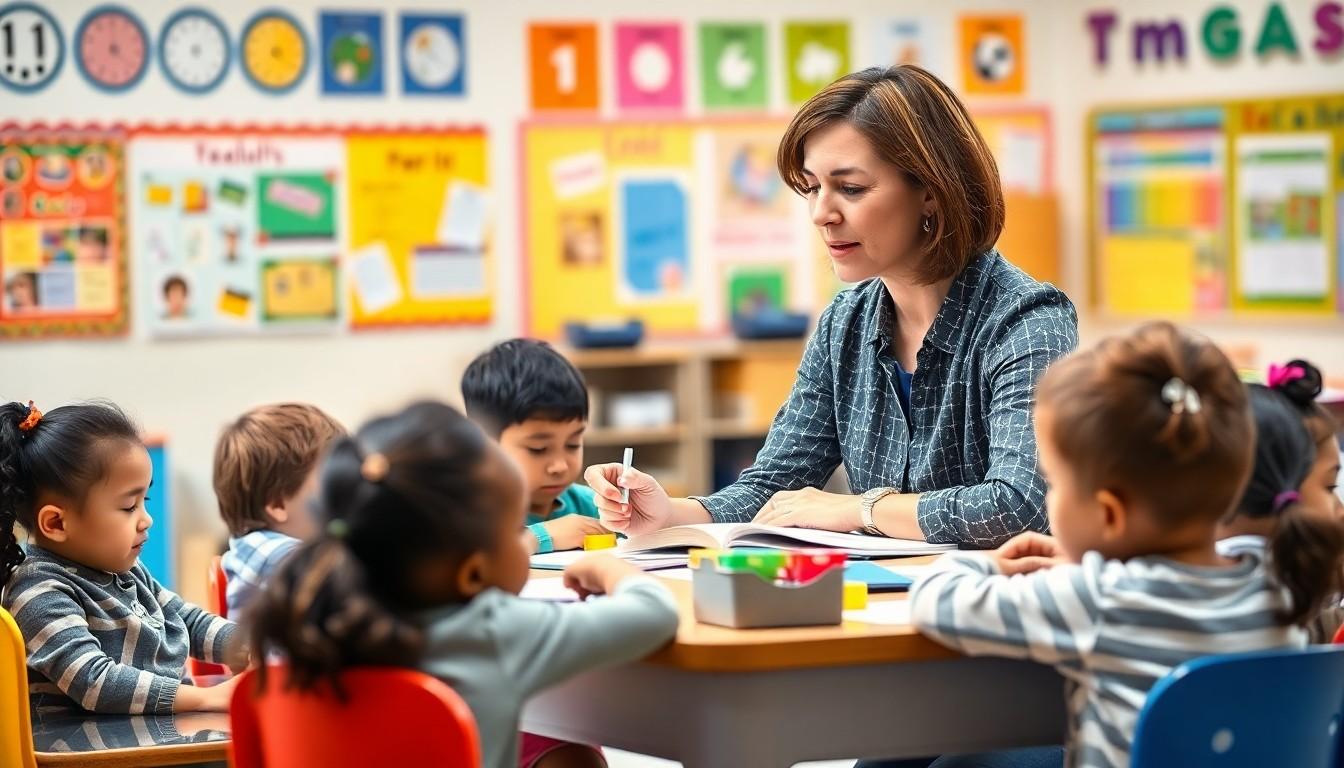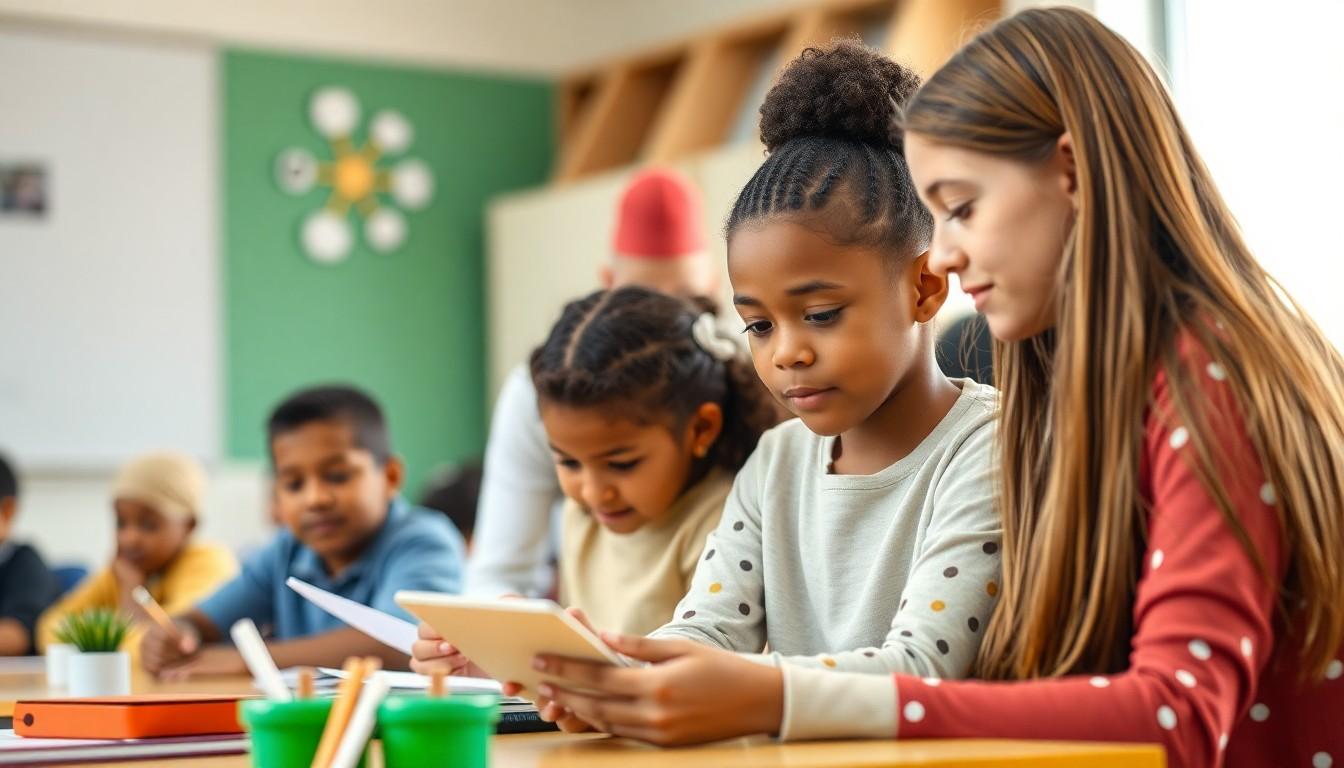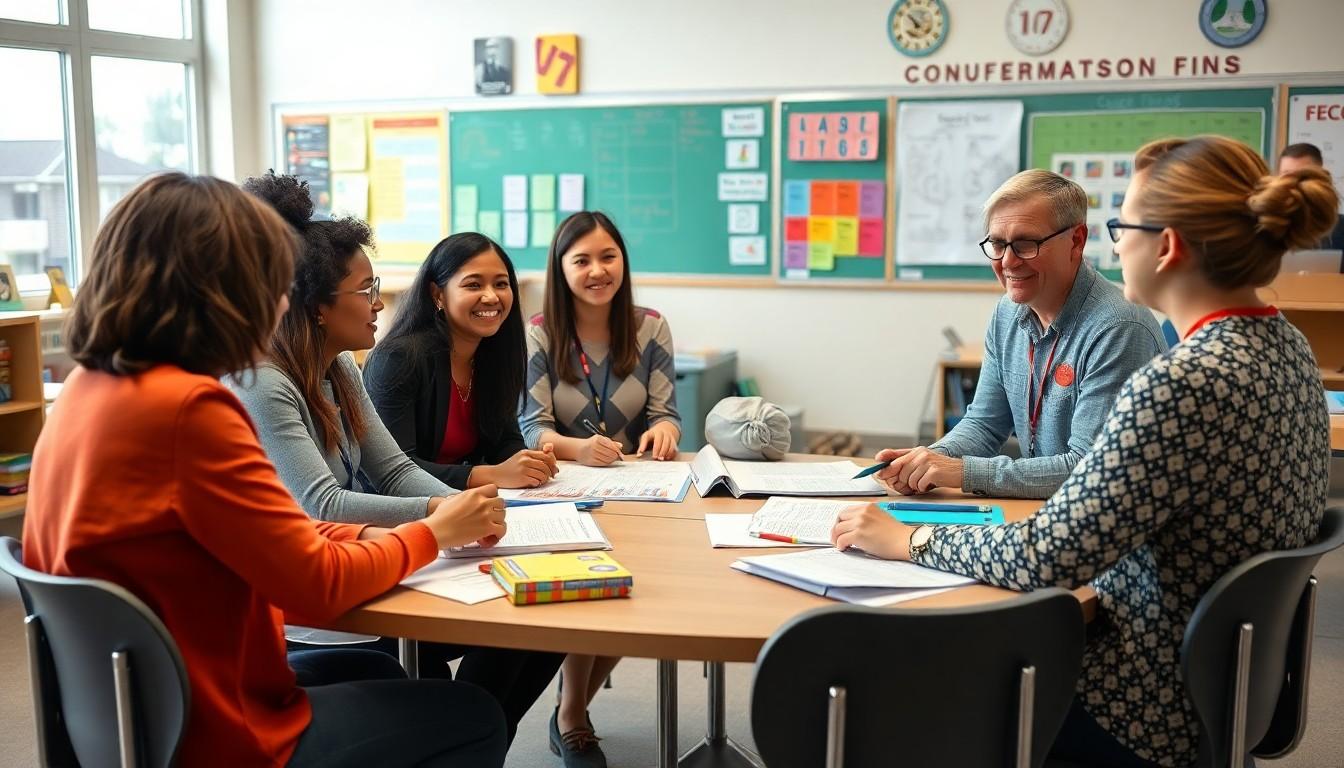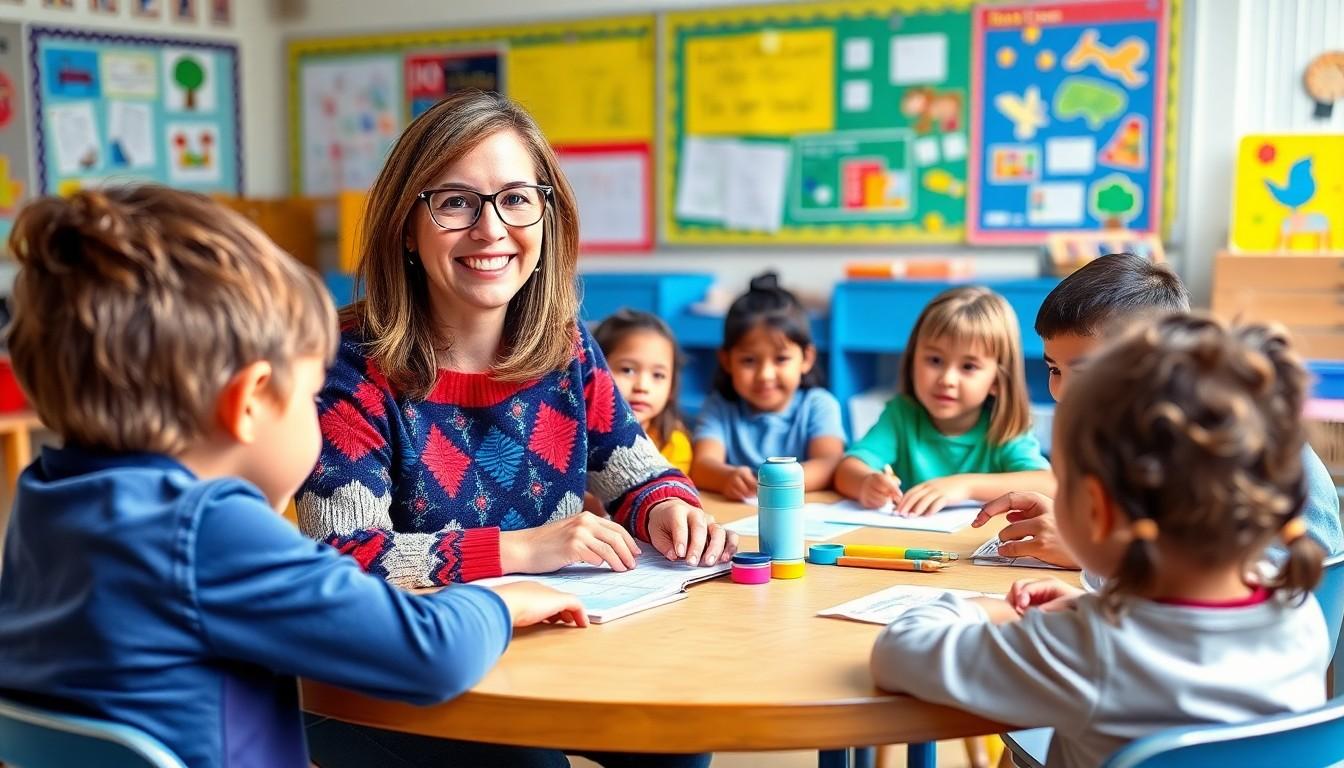In a world where every student deserves a chance to shine, special education teachers are the unsung heroes armed with patience, creativity, and a sprinkle of humor. They don’t just teach; they transform classrooms into vibrant learning spaces where every child can thrive. If you’ve ever wondered who’s behind the magic of tailored lesson plans and individualized support, look no further.
What Is a Special Education Teacher
A special education teacher supports students with diverse learning needs. These educators create customized lesson plans tailored to meet individual educational requirements. By employing patience, creativity, and effective communication, they foster an inclusive classroom atmosphere.
Collaboration plays a crucial role in their work. They frequently work with parents, therapists, and general education teachers to craft optimal strategies for each student’s success. Special education teachers assess students regularly, identifying strengths and areas for improvement to adjust instruction as necessary.
A deep understanding of various disabilities guides their methods. Many possess knowledge about autism spectrum disorders, intellectual disabilities, and learning disabilities. With specialized training, they implement appropriate teaching techniques that promote engagement and academic growth.
Utilizing positive reinforcement, they build self-esteem in students. Encouragement helps motivate learners, allowing them to take risks and embrace challenges in their educational journey.
Adaptation is a vital component of their profession. Approaches change based on each student’s unique needs, ensuring access to the curriculum. Special education teachers utilize multiple resources, such as assistive technology and specialized materials, to enhance learning experiences.
Ultimately, special education teachers transform educational environments. Through their dedication to individualized support, they ensure every student can flourish academically and socially.
Role and Responsibilities

Special education teachers play a crucial role in supporting students with diverse learning needs. Their responsibilities span various areas to ensure each student thrives academically and socially.
Assessing Student Needs
Assessing student needs forms the foundation of a special education teacher’s work. They conduct evaluations to identify the strengths and weaknesses of students. Testing instruments and observations help gather essential information about individual learning styles. Regular assessment results guide instruction strategies. They adapt teaching methods based on insights gathered, ensuring a supportive environment. Collaboration with parents and specialists further enriches this process. Teachers create a comprehensive understanding of each student’s goals and challenges, allowing for targeted support.
Developing Individualized Education Programs (IEPs)
Developing Individualized Education Programs (IEPs) stands as a significant responsibility for special education teachers. These documents outline specific educational goals for each student. Collaboration with parents, general education teachers, and related service providers is vital in crafting effective IEPs. Each IEP includes accommodations and modifications tailored to the student’s needs. Regular updates to IEPs ensure continued relevance to the student’s progress. Teachers track and document progress meticulously, making adjustments as necessary. This proactive approach helps students reach their full potential in a supportive learning environment.
Required Qualifications and Skills
 Special education teachers require specific educational credentials and skills to effectively support students with diverse learning needs.
Special education teachers require specific educational credentials and skills to effectively support students with diverse learning needs.
Education and Certification
A bachelor’s degree in special education or a related field is essential. Many states mandate certification or licensure for special education teachers, which typically involves passing exams and completing practical experience. Graduate programs enable educators to specialize further, and obtaining a master’s degree may enhance job prospects. Familiarity with state and federal regulations regarding special education is critical for ensuring compliance. Continuous professional development provides opportunities for teachers to stay updated on best practices and emerging strategies in special education.
Key Skills for Success
Adaptability stands out as a vital skill for special education teachers. They must adjust teaching methods based on individual student needs. Communication skills play a crucial role in effectively collaborating with parents and other educators. Empathy enables them to understand their students’ challenges, fostering a supportive environment. Additionally, organization skills are necessary for managing multiple IEPs and tracking student progress. Problem-solving abilities also contribute to the successful implementation of individualized strategies that enhance learning outcomes.
Challenges Faced by Special Education Teachers
Special education teachers encounter various challenges in their profession. These challenges often impact their ability to provide optimal support to their students.
Emotional and Physical Demands
Emotional strain affects many special education teachers. Constantly supporting students through their struggles can lead to burnout and stress. Many educators juggle diverse needs, requiring immense patience and energy. Physical demands may arise from managing classroom dynamics and assisting students with physical disabilities. Workdays often extend beyond the classroom, involving preparation and individualized support. Teachers must also focus on their well-being to maintain effectiveness. Finding balance between emotional investment and personal health proves crucial in sustaining their commitment.
Navigating Administrative Policies
Navigating complex administrative policies presents another significant challenge. Special education teachers often deal with extensive paperwork, including IEP documentation and compliance requirements. Many face evolving regulations that vary from state to state, complicating adherence to guidelines. Collaborating with administrators on policy changes can strain the teaching process. Limited resources for training further exacerbate this issue, hindering their ability to stay current. Such barriers make it difficult for educators to focus solely on student learning. Building effective communication channels simplifies these interactions and enhances educational environments.
Impact on Students and Communities
 Special education teachers significantly influence both students and their wider communities. They empower students with diverse learning needs by fostering independence and confidence, enabling their successful integration into society. Constructive relationships with students create an inclusive atmosphere where everyone feels valued and encouraged to learn.
Special education teachers significantly influence both students and their wider communities. They empower students with diverse learning needs by fostering independence and confidence, enabling their successful integration into society. Constructive relationships with students create an inclusive atmosphere where everyone feels valued and encouraged to learn.
Collaboration with parents and caregivers further amplifies this impact. When families engage in the educational process, students experience clearer support at home. Positive communication leads to greater educational outcomes, emphasizing the importance of teamwork in individual progress.
Communities benefit from special education teachers’ contributions as well. By preparing students for future challenges, these educators enhance overall community engagement. Students develop skills that extend beyond academics, including social and life skills, making them more equipped for adulthood.
The creation of Individualized Education Programs (IEPs) reflects the commitment of special education teachers to tailor instruction according to each student’s needs. These plans not only address academic goals but also foster social interactions and self-advocacy, ensuring that students become active participants in their communities.
Special education teachers serve as advocates, helping parents navigate resources and support systems. This guidance promotes better understanding of available services, improving access for families. Advocacy extends beyond the classroom as these teachers often engage with policymakers to influence legislation affecting students with disabilities.
Demonstrating resilience, special education teachers inspire students to overcome obstacles. Students learn that setbacks can lead to growth, building a strong foundation for future experiences. Their unwavering dedication transforms perceptions surrounding disabilities, promoting acceptance within schools and communities.
As these educators continue to adapt to the evolving landscape of education, they remain vital in shaping a more inclusive and supportive future for all students.

